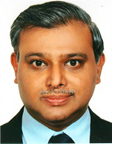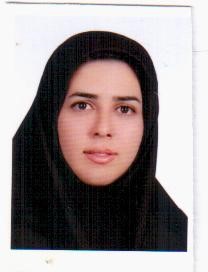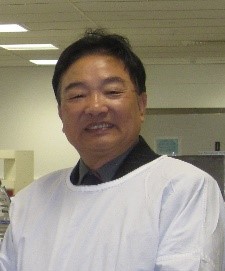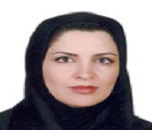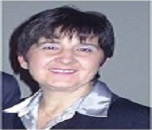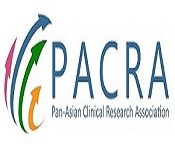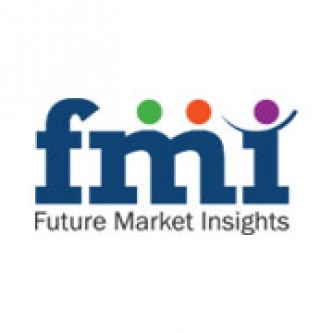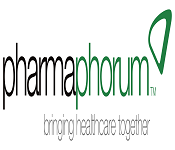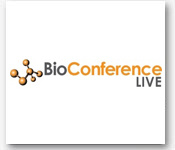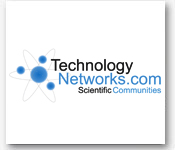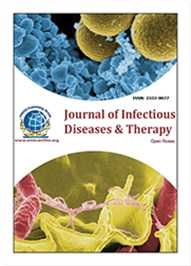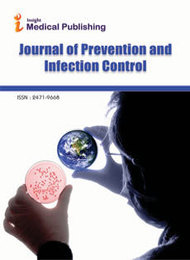Theme: Emerging Innovative Treatment & Therapeutic Techniques in Infectious Disease
Infectious Diseases Meet 2018
 Welcome Message
Welcome Message
Infectious Diseases Meet 2018

Dear Friends /Colleagues,
It is my great pleasure to see you in the Global Experts Meeting on “Infectious Diseases”, Tokyo, Japan September 3-4, 2018.
Infection, whether bacterial, viral, protozoal or fungal, has always been a source of suffering for patients and a burden to societies from health, financial and psychosocial perspectives.
Antibiotics have been battling bacteria and saving lives since the 1940's. However, some strains of bacteria have now become resistant to antibiotics, and they have been gaining strength and shifting the tide in their favor. Antibiotic resistance and the rise of resistant strains really put modern medicine at risk.
Ongoing research is trying to find solutions to such emerging problems, in addition to developing diagnostics and more effective therapeutics for existing infections.
I will be sharing with a talk from my own experience on “The unique features of oral and maxillofacial infections” and their management.
I am delighted to encourage medical professionals to come, ask questions, make discussions and make new collaborations.
Participants to the event, besides updating and discussing new trends in management of infectious diseases, have a unique opportunity to generate international research networks.
I cordially invite you to participate in this honourable event.
Have safe travels and see you in Tokyo.
Best wishes,
Dr Lydia N. Melek
Lecturer of Oral and Maxillofacial Surgery
Egypt
Track 01: Infectious Diseases
Infectious diseases kill more people worldwide than any other single cause. The diseases caused by germs and which may infect any part of the body are called infectious diseases. They can be spread by any means where there is a germ. They are caused by pathogenic microorganisms such as bacteria, virus, parasites and fungi. Germs can be spread by direct or indirect contact. Vaccination, maintenance of proper hygiene and medicines help in the prevention of infection.
Related Conferences:
8th Asia Pacific STD and Infectious Diseases Congress, November 12-13, 2018 Tokyo, Japan; Global experts meet on STD-AIDS and Infectious Diseases September 5-6, 2018 Auckland, New Zealand; 11th Global Infections Conference November 12-13, 2018 Melbourne, Australia; 10th Euro-Global Conference on Infectious Diseases September 27-29, 2018 Rome, Italy; 14th World Congress on Infection Prevention and Control October 11-12, 2018 Moscow, Russia,World Conference on Bacteriology and Infectious Diseases August 13-14, 2018 Chicago, USA; 2nd International Conference on Sexually Transmitted Diseases August 20-21, 2018 Toronto, Canada; 2nd International Conference on Sexually Transmitted Diseases, Infections and AIDS Oct 17-18, 2018 Las Vegas, USA; 2nd International Conference on Worldwide Infectious Diseases November 19-20, 2018 Orlando, USA
Track 02: Causes and Symptoms of Infectious Diseases
Infectious diseases can be caused by bacteria, virus, fungi and parasites through direct contact, indirect contact, insect bites and food contamination. Each infectious disease has its own specific signs and symptoms. General signs and symptoms common to many infectious diseases include fever, diarrhea, fatigue and muscle aches.
Related Conferences:
8th Asia Pacific STD and Infectious Diseases Congress, November 12-13, 2018 Tokyo, Japan; Global experts meet on STD-AIDS and Infectious Diseases September 5-6, 2018 Auckland, New Zealand; 11th Global Infections Conference November 12-13, 2018 Melbourne, Australia; 10th Euro-Global Conference on Infectious Diseases September 27-29, 2018 Rome, Italy; 14th World Congress on Infection Prevention and Control October 11-12, 2018 Moscow, Russia,World Conference on Bacteriology and Infectious Diseases August 13-14, 2018 Chicago, USA; 2nd International Conference on Sexually Transmitted Diseases August 20-21, 2018 Toronto, Canada; 2nd International Conference on Sexually Transmitted Diseases, Infections and AIDS Oct 17-18, 2018 Las Vegas, USA; 2nd International Conference on Worldwide Infectious Diseases November 19-20, 2018 Orlando, USA
Track 03: Problems in infectious disease practice
Infection Control in a health care facility is prevention of the spread of microorganisms from one individual to another individual to prevent these infectious diseases problems frequent hand washing, infection outbreak, water and food in hospital must be maintained.
Related Conferences:
8th Asia Pacific STD and Infectious Diseases Congress, November 12-13, 2018 Tokyo, Japan; Global experts meet on STD-AIDS and Infectious Diseases September 5-6, 2018 Auckland, New Zealand; 11th Global Infections Conference November 12-13, 2018 Melbourne, Australia; 10th Euro-Global Conference on Infectious Diseases September 27-29, 2018 Rome, Italy; 14th World Congress on Infection Prevention and Control October 11-12, 2018 Moscow, Russia,World Conference on Bacteriology and Infectious Diseases August 13-14, 2018 Chicago, USA; 2nd International Conference on Sexually Transmitted Diseases August 20-21, 2018 Toronto, Canada; 2nd International Conference on Sexually Transmitted Diseases, Infections and AIDS Oct 17-18, 2018 Las Vegas, USA; 2nd International Conference on Worldwide Infectious Diseases November 19-20, 2018 Orlando, USA
Track 04: Pediatric Infectious Diseases/ Childhood Infectious Diseases
Pediatric infectious diseases/ childhood infectious diseases are the infectious diseases which are caused in children of different age groups. Pediatric infectious diseases specialist’s takes care of the infections occurring in children and the treatment methods vary for children from adults.
Related Conferences:
8th Asia Pacific STD and Infectious Diseases Congress, November 12-13, 2018 Tokyo, Japan; Global experts meet on STD-AIDS and Infectious Diseases September 5-6, 2018 Auckland, New Zealand; 11th Global Infections Conference November 12-13, 2018 Melbourne, Australia; 10th Euro-Global Conference on Infectious Diseases September 27-29, 2018 Rome, Italy; 14th World Congress on Infection Prevention and Control October 11-12, 2018 Moscow, Russia,World Conference on Bacteriology and Infectious Diseases August 13-14, 2018 Chicago, USA; 2nd International Conference on Sexually Transmitted Diseases August 20-21, 2018 Toronto, Canada; 2nd International Conference on Sexually Transmitted Diseases, Infections and AIDS Oct 17-18, 2018 Las Vegas, USA; 2nd International Conference on Worldwide Infectious Diseases November 19-20, 2018 Orlando, USA
Track 5: Viral Infectious Diseases
Viruses are like hijackers. They invade normal living cells and use those cells to multiply and produce other viruses like themselves. This can kill, damage, or change the cells and make sick. Different viruses attack certain cells in your body such as your liver, respiratory system, or blood.
Related Conferences:
8th Asia Pacific STD and Infectious Diseases Congress, November 12-13, 2018 Tokyo, Japan; Global experts meet on STD-AIDS and Infectious Diseases September 5-6, 2018 Auckland, New Zealand; 11th Global Infections Conference November 12-13, 2018 Melbourne, Australia; 10th Euro-Global Conference on Infectious Diseases September 27-29, 2018 Rome, Italy; 14th World Congress on Infection Prevention and Control October 11-12, 2018 Moscow, Russia,World Conference on Bacteriology and Infectious Diseases August 13-14, 2018 Chicago, USA; 2nd International Conference on Sexually Transmitted Diseases August 20-21, 2018 Toronto, Canada; 2nd International Conference on Sexually Transmitted Diseases, Infections and AIDS Oct 17-18, 2018 Las Vegas, USA; 2nd International Conference on Worldwide Infectious Diseases November 19-20, 2018 Orlando, USA
Track 6: Bacterial Infectious Diseases
Bacteria are microscopic single-celled organisms that live almost everywhere. Bacteria live in every climate and location on earth. Some are airborne while others live in water or soil. Bacteria live on and inside plants, animals, and people. The word "bacteria" has a negative connotation, but bacteria perform many vital functions for organisms and in the environment.
Related Conferences:
8th Asia Pacific STD and Infectious Diseases Congress, November 12-13, 2018 Tokyo, Japan; Global experts meet on STD-AIDS and Infectious Diseases September 5-6, 2018 Auckland, New Zealand; 11th Global Infections Conference November 12-13, 2018 Melbourne, Australia; 10th Euro-Global Conference on Infectious Diseases September 27-29, 2018 Rome, Italy; 14th World Congress on Infection Prevention and Control October 11-12, 2018 Moscow, Russia,World Conference on Bacteriology and Infectious Diseases August 13-14, 2018 Chicago, USA; 2nd International Conference on Sexually Transmitted Diseases August 20-21, 2018 Toronto, Canada; 2nd International Conference on Sexually Transmitted Diseases, Infections and AIDS Oct 17-18, 2018 Las Vegas, USA; 2nd International Conference on Worldwide Infectious Diseases November 19-20, 2018 Orlando, USA
Track 7: Fungal Infectious Diseases
Fungal Infectious Diseases are often caused by fungi that are common in the environment. Most fungi are not dangerous, but some types can be harmful to health. Mild fungal skin diseases can look like a rash and are very common. Fungal diseases in the lungs are often similar to other illnesses such as the flu or tuberculosis. Some fungal infections like fungal meningitis and bloodstream infections are less common than skin and lung infections but can be deadly.
Related Conferences:
8th Asia Pacific STD and Infectious Diseases Congress, November 12-13, 2018 Tokyo, Japan; Global experts meet on STD-AIDS and Infectious Diseases September 5-6, 2018 Auckland, New Zealand; 11th Global Infections Conference November 12-13, 2018 Melbourne, Australia; 10th Euro-Global Conference on Infectious Diseases September 27-29, 2018 Rome, Italy; 14th World Congress on Infection Prevention and Control October 11-12, 2018 Moscow, Russia,World Conference on Bacteriology and Infectious Diseases August 13-14, 2018 Chicago, USA; 2nd International Conference on Sexually Transmitted Diseases August 20-21, 2018 Toronto, Canada; 2nd International Conference on Sexually Transmitted Diseases, Infections and AIDS Oct 17-18, 2018 Las Vegas, USA; 2nd International Conference on Worldwide Infectious Diseases November 19-20, 2018 Orlando, USA
Track 8: Blood infectious Diseases
Germs can cause infection in human blood and diseases are known as blood borne pathogens. The most common and dangerous germs spread through blood within the hospital are viral hepatitis B and hepatitis c virus. These viruses cause infections and liver injury. This virus cause AIDS. Organisms such as bacteria, viruses, prions, and parasites will be transmitted through blood transfusions.
Related Conferences:
8th Asia Pacific STD and Infectious Diseases Congress, November 12-13, 2018 Tokyo, Japan; Global experts meet on STD-AIDS and Infectious Diseases September 5-6, 2018 Auckland, New Zealand; 11th Global Infections Conference November 12-13, 2018 Melbourne, Australia; 10th Euro-Global Conference on Infectious Diseases September 27-29, 2018 Rome, Italy; 14th World Congress on Infection Prevention and Control October 11-12, 2018 Moscow, Russia,World Conference on Bacteriology and Infectious Diseases August 13-14, 2018 Chicago, USA; 2nd International Conference on Sexually Transmitted Diseases August 20-21, 2018 Toronto, Canada; 2nd International Conference on Sexually Transmitted Diseases, Infections and AIDS Oct 17-18, 2018 Las Vegas, USA; 2nd International Conference on Worldwide Infectious Diseases November 19-20, 2018 Orlando, USA
Track 9: Epidemiological Diseases
The infectious disease epidemiology encompasses domestic and global work on the epidemiology of emerging and re-emerging infections, global infectious disease threats, disease surveillance, disease detection, development of vaccines and other prevention methods, clinical trials, and the role of infectious pathogens in the pathogenesis of chronic non-communicable diseases such as cancer and cardiovascular disease. The broad range to search the novel pathogens using advanced molecular techniques to longitudinal population-based studies to define transmission dynamics and spectrum of disease and survival. Approaches are employed in an interdisciplinary fashion to define etiology, pathogenesis, transmission, and prevention/treatment potential.
Related Conferences:
8th Asia Pacific STD and Infectious Diseases Congress, November 12-13, 2018 Tokyo, Japan; Global experts meet on STD-AIDS and Infectious Diseases September 5-6, 2018 Auckland, New Zealand; 11th Global Infections Conference November 12-13, 2018 Melbourne, Australia; 10th Euro-Global Conference on Infectious Diseases September 27-29, 2018 Rome, Italy; 14th World Congress on Infection Prevention and Control October 11-12, 2018 Moscow, Russia,World Conference on Bacteriology and Infectious Diseases August 13-14, 2018 Chicago, USA; 2nd International Conference on Sexually Transmitted Diseases August 20-21, 2018 Toronto, Canada; 2nd International Conference on Sexually Transmitted Diseases, Infections and AIDS Oct 17-18, 2018 Las Vegas, USA; 2nd International Conference on Worldwide Infectious Diseases November 19-20, 2018 Orlando, USA
Track 10: Global Markets on Infectious Diseases
Global market report of infectious diseases is a complete study of current trends in the infectious diseases therapeutic and diagnostic market, industry growth drivers, advanced therapies and restraints. It provides market projections for the coming years. It includes analysis of recent developments in technology for infection diagnosis and treatment. Market reports also includes a review of micro and macro factors essential for the existing market players and new entrants along with detailed value chain analysis.
Related Conferences:
8th Asia Pacific STD and Infectious Diseases Congress, November 12-13, 2018 Tokyo, Japan; Global experts meet on STD-AIDS and Infectious Diseases September 5-6, 2018 Auckland, New Zealand; 11th Global Infections Conference November 12-13, 2018 Melbourne, Australia; 10th Euro-Global Conference on Infectious Diseases September 27-29, 2018 Rome, Italy; 14th World Congress on Infection Prevention and Control October 11-12, 2018 Moscow, Russia,World Conference on Bacteriology and Infectious Diseases August 13-14, 2018 Chicago, USA; 2nd International Conference on Sexually Transmitted Diseases August 20-21, 2018 Toronto, Canada; 2nd International Conference on Sexually Transmitted Diseases, Infections and AIDS Oct 17-18, 2018 Las Vegas, USA; 2nd International Conference on Worldwide Infectious Diseases November 19-20, 2018 Orlando, USA
Track 11: Tropical Infectious Diseases
Tropical diseases encompass all diseases that occur solely in the tropics. In practice, the term is often taken to refer to infectious diseases that thrive in hot, humid conditions, such as malaria, leishmaniasis, schistosomiasis, onchocerciasis, lymphatic filariasis, Chagas disease, African trypanosomiasis, and dengue.
Related Conferences:
8th Asia Pacific STD and Infectious Diseases Congress, November 12-13, 2018 Tokyo, Japan; Global experts meet on STD-AIDS and Infectious Diseases September 5-6, 2018 Auckland, New Zealand; 11th Global Infections Conference November 12-13, 2018 Melbourne, Australia; 10th Euro-Global Conference on Infectious Diseases September 27-29, 2018 Rome, Italy; 14th World Congress on Infection Prevention and Control October 11-12, 2018 Moscow, Russia,World Conference on Bacteriology and Infectious Diseases August 13-14, 2018 Chicago, USA; 2nd International Conference on Sexually Transmitted Diseases August 20-21, 2018 Toronto, Canada; 2nd International Conference on Sexually Transmitted Diseases, Infections and AIDS Oct 17-18, 2018 Las Vegas, USA; 2nd International Conference on Worldwide Infectious Diseases November 19-20, 2018 Orlando, USA
Track 12: STD And HIV infection
There are a number of infections and cancers that can develop in people who are living with HIV. There are infections that can be life threatening. These are also known as opportunistic infections. The more common life-threatening infections include a lung infection called Pneumocystis pneumonia (PCP), an eye infection caused by cytomegalovirus (CMV), a brain infection called toxoplasmosis, and a generalized infection called Mycobacterium avium complex (MAC). Cancers that are more common include Hodgkin’s lymphoma, lung cancer, skin cancer, anal cancer, cervical and vaginal cancer in women, and testicular and prostate cancer in men. These cancers can often be successfully treated if they occur in people with HIV who maintain healthy immune systems with HIV treatment.
Related Conferences:
8th Asia Pacific STD and Infectious Diseases Congress, November 12-13, 2018 Tokyo, Japan; Global experts meet on STD-AIDS and Infectious Diseases September 5-6, 2018 Auckland, New Zealand; 11th Global Infections Conference November 12-13, 2018 Melbourne, Australia; 10th Euro-Global Conference on Infectious Diseases September 27-29, 2018 Rome, Italy; 14th World Congress on Infection Prevention and Control October 11-12, 2018 Moscow, Russia,World Conference on Bacteriology and Infectious Diseases August 13-14, 2018 Chicago, USA; 2nd International Conference on Sexually Transmitted Diseases August 20-21, 2018 Toronto, Canada; 2nd International Conference on Sexually Transmitted Diseases, Infections and AIDS Oct 17-18, 2018 Las Vegas, USA; 2nd International Conference on Worldwide Infectious Diseases November 19-20, 2018 Orlando, USA
Track 13: Infection, Immunity and Inflammation
An investigation of key characteristics of viruses, bacteria and other micro-organisms causing infections in humans. The mechanisms by which micro-organisms cause disease and evade the immune system are considered. It then explores the principle components of the immune system, describing the molecules and cells that protect against infection and cancer, and their contribution to innate and adaptive immune responses.
Related Conferences:
8th Asia Pacific STD and Infectious Diseases Congress, November 12-13, 2018 Tokyo, Japan; Global experts meet on STD-AIDS and Infectious Diseases September 5-6, 2018 Auckland, New Zealand; 11th Global Infections Conference November 12-13, 2018 Melbourne, Australia; 10th Euro-Global Conference on Infectious Diseases September 27-29, 2018 Rome, Italy; 14th World Congress on Infection Prevention and Control October 11-12, 2018 Moscow, Russia,World Conference on Bacteriology and Infectious Diseases August 13-14, 2018 Chicago, USA; 2nd International Conference on Sexually Transmitted Diseases August 20-21, 2018 Toronto, Canada; 2nd International Conference on Sexually Transmitted Diseases, Infections and AIDS Oct 17-18, 2018 Las Vegas, USA; 2nd International Conference on Worldwide Infectious Diseases November 19-20, 2018 Orlando, USA
Track 14: Pharmacology and Infectious Diseases
Pandemic, epidemic and endemic infectious diseases are united by a common problem to identify potential pharmacological interventions to treat infections. The large numbers of emerging and neglected infectious diseases are badly affecting the poorest members of the global society; new ways are required to develop high productivity discovery systems that can be applied to a large number of pathogens. The basis for developing methods to prioritize a priori potential drug targets analyzes the pharmacological landscape of an infectious disease.
Related Conferences:
8th Asia Pacific STD and Infectious Diseases Congress, November 12-13, 2018 Tokyo, Japan; Global experts meet on STD-AIDS and Infectious Diseases September 5-6, 2018 Auckland, New Zealand; 11th Global Infections Conference November 12-13, 2018 Melbourne, Australia; 10th Euro-Global Conference on Infectious Diseases September 27-29, 2018 Rome, Italy; 14th World Congress on Infection Prevention and Control October 11-12, 2018 Moscow, Russia,World Conference on Bacteriology and Infectious Diseases August 13-14, 2018 Chicago, USA; 2nd International Conference on Sexually Transmitted Diseases August 20-21, 2018 Toronto, Canada; 2nd International Conference on Sexually Transmitted Diseases, Infections and AIDS Oct 17-18, 2018 Las Vegas, USA; 2nd International Conference on Worldwide Infectious Diseases November 19-20, 2018 Orlando, USA
Track 15: Veterinary Infectious Diseases
These sciences are used to control human health through monitoring and control of zoonotic disease, infectious disease transmitted from non-human animals to humans, food safety, and indirectly through human applications from basic medical research food supply is through livestock health monitoring and treatment, and mental health by keeping pet’s healthy and long living. Veterinary scientists often collaborate with epidemiologists.
Related Conferences:
8th Asia Pacific STD and Infectious Diseases Congress, November 12-13, 2018 Tokyo, Japan; Global experts meet on STD-AIDS and Infectious Diseases September 5-6, 2018 Auckland, New Zealand; 11th Global Infections Conference November 12-13, 2018 Melbourne, Australia; 10th Euro-Global Conference on Infectious Diseases September 27-29, 2018 Rome, Italy; 14th World Congress on Infection Prevention and Control October 11-12, 2018 Moscow, Russia,World Conference on Bacteriology and Infectious Diseases August 13-14, 2018 Chicago, USA; 2nd International Conference on Sexually Transmitted Diseases August 20-21, 2018 Toronto, Canada; 2nd International Conference on Sexually Transmitted Diseases, Infections and AIDS Oct 17-18, 2018 Las Vegas, USA; 2nd International Conference on Worldwide Infectious Diseases November 19-20, 2018 Orlando, USA
Track 16: Antimicrobials/ Antibiotics/ Antibacterial
Antimicrobials/ antibiotics/ antibacterial are the drugs used in the treatment and prevention of bacterial infections. They may either kill or inhibit the growth of bacteria. Few antibiotics possess antiprotozoal activity. Antibiotics are not effective against viruses such as the common cold or influenza and their inappropriate use allows the emergence of resistant organisms.
Related Conferences:
8th Asia Pacific STD and Infectious Diseases Congress, November 12-13, 2018 Tokyo, Japan; Global experts meet on STD-AIDS and Infectious Diseases September 5-6, 2018 Auckland, New Zealand; 11th Global Infections Conference November 12-13, 2018 Melbourne, Australia; 10th Euro-Global Conference on Infectious Diseases September 27-29, 2018 Rome, Italy; 14th World Congress on Infection Prevention and Control October 11-12, 2018 Moscow, Russia,World Conference on Bacteriology and Infectious Diseases August 13-14, 2018 Chicago, USA; 2nd International Conference on Sexually Transmitted Diseases August 20-21, 2018 Toronto, Canada; 2nd International Conference on Sexually Transmitted Diseases, Infections and AIDS Oct 17-18, 2018 Las Vegas, USA; 2nd International Conference on Worldwide Infectious Diseases November 19-20, 2018 Orlando, USA
Track 17: Vaccines and Vaccination
Vaccines are the products that can produce immunity from a disease and can be administered through needle injections, by mouth and by aerosol. Vaccination is the injection of a killed or weakened organism that produces immunity in the body against that organism.
Related Conferences:
8th Asia Pacific STD and Infectious Diseases Congress, November 12-13, 2018 Tokyo, Japan; Global experts meet on STD-AIDS and Infectious Diseases September 5-6, 2018 Auckland, New Zealand; 11th Global Infections Conference November 12-13, 2018 Melbourne, Australia; 10th Euro-Global Conference on Infectious Diseases September 27-29, 2018 Rome, Italy; 14th World Congress on Infection Prevention and Control October 11-12, 2018 Moscow, Russia,World Conference on Bacteriology and Infectious Diseases August 13-14, 2018 Chicago, USA; 2nd International Conference on Sexually Transmitted Diseases August 20-21, 2018 Toronto, Canada; 2nd International Conference on Sexually Transmitted Diseases, Infections and AIDS Oct 17-18, 2018 Las Vegas, USA; 2nd International Conference on Worldwide Infectious Diseases November 19-20, 2018 Orlando, USA
Track 18: Health Care - Infectious Diseases
The infections experience in health care settings has become more challenging. Most of the duty workers get exposed commonly to a variety of infectious diseases during the performance of their duties. The primary route of infections transmission is airborne, contact (direct and indirect) which involves the entry of infectious agents from infected individual to a susceptible individual through physical contact and Indirect contact transmission occurs by susceptible individual physical contact with contaminated items. Infection conference 2018 is going to be a platform to discuss microbes that cause illness and its awareness of exposure in the health care settings.
Related Conferences:
8th Asia Pacific STD and Infectious Diseases Congress, November 12-13, 2018 Tokyo, Japan; Global experts meet on STD-AIDS and Infectious Diseases September 5-6, 2018 Auckland, New Zealand; 11th Global Infections Conference November 12-13, 2018 Melbourne, Australia; 10th Euro-Global Conference on Infectious Diseases September 27-29, 2018 Rome, Italy; 14th World Congress on Infection Prevention and Control October 11-12, 2018 Moscow, Russia,World Conference on Bacteriology and Infectious Diseases August 13-14, 2018 Chicago, USA; 2nd International Conference on Sexually Transmitted Diseases August 20-21, 2018 Toronto, Canada; 2nd International Conference on Sexually Transmitted Diseases, Infections and AIDS Oct 17-18, 2018 Las Vegas, USA; 2nd International Conference on Worldwide Infectious Diseases November 19-20, 2018 Orlando, USA
Track 19: Infectious Diseases Prevention, Control and Cure
Infectious diseases prevention and control is helpful to prevent the transmission of infectious diseases. Aseptic technique is normally applied to prevent the infections caused by different means. Sterilization is another process of killing microorganisms by the application of heat. Disinfection is the process of killing harmful microorganisms. Some infectious diseases can be prevented by avoiding direct contact with the contagious person. Infections can also be controlled and prevented by creating public awareness on various infectious diseases and their outbreaks. Infections can be cured by various antimicrobials.
Related Conferences:
8th Asia Pacific STD and Infectious Diseases Congress, November 12-13, 2018 Tokyo, Japan; Global experts meet on STD-AIDS and Infectious Diseases September 5-6, 2018 Auckland, New Zealand; 11th Global Infections Conference November 12-13, 2018 Melbourne, Australia; 10th Euro-Global Conference on Infectious Diseases September 27-29, 2018 Rome, Italy; 14th World Congress on Infection Prevention and Control October 11-12, 2018 Moscow, Russia,World Conference on Bacteriology and Infectious Diseases August 13-14, 2018 Chicago, USA; 2nd International Conference on Sexually Transmitted Diseases August 20-21, 2018 Toronto, Canada; 2nd International Conference on Sexually Transmitted Diseases, Infections and AIDS Oct 17-18, 2018 Las Vegas, USA; 2nd International Conference on Worldwide Infectious Diseases November 19-20, 2018 Orlando, USA
Track 20: Malaria
Malaria is a mosquito borne infectious disease affecting humans and other animals caused by parasitic protozoans (a group of single celled microorganisms) belonging to the plasmodium type. Malaria symptoms typically include fever, fatigue, vomiting and headaches which can be observed in 10-15 after being bitten by mosquito. In severe cases, it can cause yellow skin, seizures, comaor and even death.
Related Conferences:
8th Asia Pacific STD and Infectious Diseases Congress, November 12-13, 2018 Tokyo, Japan; Global experts meet on STD-AIDS and Infectious Diseases September 5-6, 2018 Auckland, New Zealand; 11th Global Infections Conference November 12-13, 2018 Melbourne, Australia; 10th Euro-Global Conference on Infectious Diseases September 27-29, 2018 Rome, Italy; 14th World Congress on Infection Prevention and Control October 11-12, 2018 Moscow, Russia,World Conference on Bacteriology and Infectious Diseases August 13-14, 2018 Chicago, USA; 2nd International Conference on Sexually Transmitted Diseases August 20-21, 2018 Toronto, Canada; 2nd International Conference on Sexually Transmitted Diseases, Infections and AIDS Oct 17-18, 2018 Las Vegas, USA; 2nd International Conference on Worldwide Infectious Diseases November 19-20, 2018 Orlando, USA
Track 21: Laboratory Diagnosis – Infectious Diseases:
Most of the diseases have similar signs and symptoms but the samples of the infected host body fluid disclose the microbe cause the illness. However, the detection of microbes that causes infectious diseases plays key role in medical research.
Related Conferences:
8th Asia Pacific STD and Infectious Diseases Congress, November 12-13, 2018 Tokyo, Japan; Global experts meet on STD-AIDS and Infectious Diseases September 5-6, 2018 Auckland, New Zealand; 11th Global Infections Conference November 12-13, 2018 Melbourne, Australia; 10th Euro-Global Conference on Infectious Diseases September 27-29, 2018 Rome, Italy; 14th World Congress on Infection Prevention and Control October 11-12, 2018 Moscow, Russia,World Conference on Bacteriology and Infectious Diseases August 13-14, 2018 Chicago, USA; 2nd International Conference on Sexually Transmitted Diseases August 20-21, 2018 Toronto, Canada; 2nd International Conference on Sexually Transmitted Diseases, Infections and AIDS Oct 17-18, 2018 Las Vegas, USA; 2nd International Conference on Worldwide Infectious Diseases November 19-20, 2018 Orlando, USA
Track 22: Bone Infection
A bone infection, also called osteomyelitis, can result when bacteria or fungi invade a bone. In children, bone infections most commonly occur in the long bones of the arms and legs. In adults, they usually appear in the hips, spine, and feet. Bone infections can happen suddenly or develop over a long period of time. If they’re not properly treated, bone infections can leave a bone permanently damaged.
Related Conferences:
8th Asia Pacific STD and Infectious Diseases Congress, November 12-13, 2018 Tokyo, Japan; Global experts meet on STD-AIDS and Infectious Diseases September 5-6, 2018 Auckland, New Zealand; 11th Global Infections Conference November 12-13, 2018 Melbourne, Australia; 10th Euro-Global Conference on Infectious Diseases September 27-29, 2018 Rome, Italy; 14th World Congress on Infection Prevention and Control October 11-12, 2018 Moscow, Russia,World Conference on Bacteriology and Infectious Diseases August 13-14, 2018 Chicago, USA; 2nd International Conference on Sexually Transmitted Diseases August 20-21, 2018 Toronto, Canada; 2nd International Conference on Sexually Transmitted Diseases, Infections and AIDS Oct 17-18, 2018 Las Vegas, USA; 2nd International Conference on Worldwide Infectious Diseases November 19-20, 2018 Orlando, USA
Conference Series Conferences invites all the participants from all over the world to attend ‘Infectious Diseases Meet 2018’ which includes prompt Keynote Presentations, Special Sessions, Workshops, Symposiums, Oral talks, Poster Presentations and Exhibitions.
Infectious Diseases are disorders caused by organisms such as bacteria, viruses, fungi or parasites. Infectious diseases may be of water borne, food borne, vector borne, air borne in human beings as well as in plants and animals. Infectious diseases basically emphasize on the pathogenesis of the bacteria and their therapeutic measures, coalesce of branches of Microbiology Especially Clinical and Diagnostic Microbiology which deals with the cure and prevention of the Infectious diseases. It represents an increasingly important cause of human morbidity and mortality throughout the world. Vaccine development is thus of great importance in terms of global health.
The conference attains significance when we look at the worldwide deaths due to Infectious Diseases.Tetanus (500,000), Measles(1million),HIV/AIDS(1million),HepatitisB (1.1million), Malaria(2.1million), Diarrhea (3.1 million),Tuberculosis (3.1 million), Respiratory Infections (4.4 million).
Who should attend?
- Microbiologists
- Bacteriologists
- Virologists
- Parasitologists
- Mycologists
- Pathologists
- Pharmacists
- Epidemiologists
- Dermatologists
- Neurologist
- Ophthalmologist
- Cardiologist
- Health Care Professionals
Why to attend?
With members from around the world focused on learning about Emerging Innovative Treatment & Therapeutic Techniques in Infectious Diseases, this is your best opportunity to reach the largest assemblage of participants from the Infectious diseases community. This particular conference conduct Presentations, distributes information, conducts meetings with current and potential scientists, make a splash with new drug developments, and receive name recognition at this 3-day event. World’s eminent speakers, the most recent therapeutic and diagnostic techniques, developments, and the Novel technologies and therapeutic measures for infectious diseases prevention and control are hallmarks of this conference.
Targeted Audience
- Directors, Board Members, Presidents, Vice Presidents, Deans and Head of the Departments
- Infectious Diseases Researchers, Scientists, Faculties, Students
- Infectious Diseases Associations and Societies
- Medical Colleges
- Pharmaceutical Companies and Industries
- Medical Devices Manufacturing Companies
- Drug Manufacturing Companies and Industries
- Laboratory Technicians and Diagnostic Companies
- Business Entrepreneurs and Industrialists
- Training Institutes
- Software Developing Companies
- Data Management Companies
For Scientific Sessions please go through the link: https://infectiousmeet.conferenceseries.com/call-for-abstracts.php
For Abstract Submission please go through the link: https://infectiousmeet.conferenceseries.com/abstract-submission.php
Scope and Importance of Infection Diseases
Every year, lives are lost because of the spread of infections in hospitals. Health care workers can take steps to prevent the spread of infectious diseases. These steps are part of infection control. Infection prevention and control measures aim to ensure the protection of those who might be vulnerable to acquiring an infection both in the general community and while receiving care due to health problems, in a range of settings. The basic principle of infection prevention and control is hygiene. Healthcare personnel might need to take additional infection control steps if a PUI or patient with confirmed EVD has other conditions or illnesses caused by specific infectious diseases, such as tuberculosis. Healthcare personnel can be exposed to Ebola virus by touching a patient’s body fluids, contaminated medical supplies and equipment, or contaminated environmental surfaces. Splashes to unprotected mucous membranes (for example, the eyes, nose, or mouth) are particularly hazardous. Procedures that can increase environmental contamination with infectious material or create aerosols should be minimized. healthcare personnel (HCP) refers all people, paid and unpaid, working in healthcare settings who have the potential for exposure to patients and/or to infectious materials, including body substances, contaminated medical supplies and equipment, contaminated environmental surfaces, or aerosols generated during certain medical procedures. HCP include, but are not limited to, physicians, nurses, nursing assistants, therapists, technicians, emergency medical service personnel, dental personnel, pharmacists, laboratory personnel, autopsy personnel, students and trainees, contractual personnel, home healthcare personnel, and people not directly involved in patient care (clerical, dietary, housekeeping, laundry, security, maintenance, billing, chaplains, and volunteers) but potentially exposed to infectious agents that can be transmitted to and from HCP and patients.
Why Tokyo (Japan)?
Japan is the second largest Life science market in the world after USA, Occupying about 10% of Market in each of the global drug and Medical devices market. According to Data monitor, the Japanese biotechnology market had total revenue of $ 43.3 Billion in 2013. By 2017, the market is expected to grow to $ 53.8 Billion.
The Japanese pharmaceutical market is the world’s second-largest, with 2013 sales estimated at $115 billion. Japan accounts for a little less than 10 percent of the global Pharma market, compared with 38.4 percent for the U.S. and 20.7 percent for Western Europe
The Japanese market is a promising region for proteomics companies, as a high amount of proteomics research is being conducted in the country.
Best Places to Visit in Japan:
The most visited places would be Tokyo, Kyoto, and Nara. Some other places with some frequent tourist sightseeing include Nikko, Kamakura, Hakone, Osaka, and Hiroshima.
However, the most visited places are not necessarily the best. There are many excellent places that are not on the tourist radar.
The Yaeyama Islands and Okinawa are also very beautiful but get a lot fewer tourists.
Worldwide Associations for Infectious Diseases
- International Society for Infectious Diseases
- Journal of the Japanese Association for Infectious Disease
- Pediatric Infectious Diseases Society
- Texas Infectious Disease Society
- British Infection Association
- Infectious Diseases Society of America
- National Foundation for Infectious Diseases
- Infectious Disease Association of California
- Society of Infectious Diseases Pharmacists
- Cambridge Infectious Diseases
Major Infectious Disease Societies around the Globe
- European Society of Clinical Microbiology and Infectious Diseases
- International Union of Microbiological Societies
- Federation of Infection Societies
- Canadian Society of Microbiologists
- British Infection Association
- Federation of European Microbiological Societies
- Welsh Microbiology Association
- Clinical Virology Network
- American Society for Microbiology
- Society for General Microbiology
- Infectious Diseases Society of America
Members associated with Infectious Diseases
- Centre for Infectious Diseases and Policy includes 218 members
- Global Public Health is having 106913 members
- Members Pediatric Infectious Disease and Immunology has 3291 members
- European Society of Clinical Microbiology and Infectious Diseases has 3438 members
- Infectious Diseases Society has 707 members
Universities related to Infectious Diseases
- University of Cambridge
- Kings College of London
- London School of Hygiene and Tropical Medicine
- Imperial College London
- UCL Institute of Epidemiology and Health care
- University of Sheffield
- Pediatric Infectious Diseases Society
- Columbia University
- University of Maryland
- Swedish Institute for Infectious Disease Control
- Uppsala University
- University of Gothenburg
- University of Otego
- Oslo University
- University of Pittsburgh
- Emory Health Sciences
- Queensland University of Technology
- University of Liverpool
- University of Colorado Denver
- Infectious Diseases Society of America
- Medical College of Georgia at Georgia Regents University
Market Research on Infectious Diseases
The global market for infectious disease treatments was valued at $90.4 billion in 2009. This market is expected to increase at a compound annual growth rate (CAGR) of 8.8% to reach $138 billion in 2014. The largest market share belongs to antibiotic treatments for bacterial and fungal diseases at 53% of the total infectious disease treatment market. Fungal disease treatments will experience a slightly higher compound annual growth rate (CAGR) of 6.2%, from $4.6 billion in 2009 to $6.2 billion in 2014. Viral disease treatments will have the fastest compound annual growth rate (CAGR) of 12.1%, increasing from nearly $45 billion in 2009 to $79 billion in 2014.
Funding allotted for Infectious Diseases
The Centers for Disease Control and Prevention’s (CDC) Procurement and Grants Office (PGO) awards over 25,000 acquisition and assistance actions each year and obligates approximately $11 billion in federal funds. PGO aids in achieving CDC’s mission by quickly and effectively allocating funds to where they are needed. In its Pledge to the American People, CDC commits to be a diligent steward of the funds entrusted to the Agency. PGO ensures this pledge remains intact. To learn more about PGO, please review our FY 2014 Annual Report, Acquisition Snapshot, and Assistance Snapshot.
Global Prevalence of Infectious Diseases
The global market for infectious disease diagnostic, vaccine and pharmaceutical products was $59.2 billion in 2011 and $66.4 billion in 2012. Market growth looks promising; the overall market value for 2017 is projected to be $96.8 billion after increasing at a compound annual growth rate (CAGR) of 7.8%. The demographic transition is associated with an epidemiological transition in the causes and age of death. A predominant feature of this transition is a decrease in the number of deadly infections occurring during childhood. On the contrary, it is projected that, in 2020, three-quarters of all deaths in developing countries could be due to age-associated diseases. These are predominantly non-communicable diseases, such as cardiovascular disease, cancer, and diabetes. What is the role of infection in the death of elderly individuals? Statistics from the WHO suggest that, in Europe and the United States, ∼5% of the population >60 years old will die as a consequence of infection, compared with ∼20% in Africa. However, although this relative difference in the importance of infection as a cause of death in industrialized countries versus developing countries is certainly relevant, the absolute numbers should be regarded with caution. Indeed, although studies using death certificates to identify causes of death usually find a relatively low importance of infection in industrialized countries, autopsy studies suggest a much higher contribution of infections to the overall causes of death (20%–30%). In the developing world, the leading infectious causes of death are respiratory tract infections, diarrheal diseases, tuberculosis, malaria, and AIDS, which together represent >90% of deaths. The remaining 10% are due to tropical diseases and various other infections. In industrialized countries, respiratory tract infections, bloodstream infections, urinary tract infections, and infections of the digestive system represent 90% of infection-related deaths; other diseases such as tuberculosis, hepatitis B and C, diarrheal diseases, and AIDS represent nearly all of the remaining 10%. As already stated by Kalache in 1996, many infectious diseases “no longer kill but neither do they die”. This aphorism is also a reminder that the impact of infectious diseases should not only be measured by mortality rate, but also by morbidity and quality of life, particularly in the aging population. These parameters are much more difficult to assess objectively, but understanding them will be increasingly important in the future.
We are also obliged to various delegate experts, company representatives and other eminent personalities who supported the conference by facilitating active discussion forums. We sincerely thank the Organizing Committee Members for their gracious presence, support and assistance. With the unique feedback from the event, Conference Series would like to announce the commencement of the “Global Experts Meeting on Infectious Diseases” to be held during August 06-07, 2018, at Tokyo, Japan.
Let us meet again @ Infectious Diseases Meet 2018
For more information please visit: https://infectiousmeet.conferenceseries.com/
Worldwide deaths due to Infectious Diseases
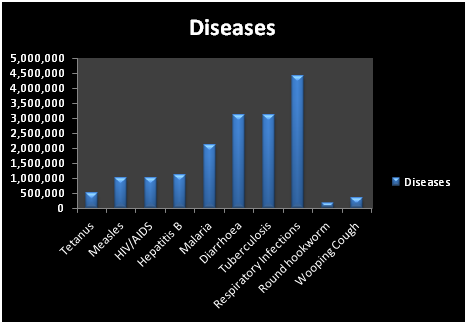
Infectious Diseases 2017 Past Conference Report
Sensing the raising importance of Infectious Diseases prevention, control, treatment and cure, Conference Series hosted 2nd World Congress on Infectious Diseases (Infectious Diseases 2017), scheduled from August 21-23, 2016 in San Francisco, California, USA with a theme “Novel Treatment Methods for Infectious Diseases Prevention, Control and Cure”. The conference was successful in gathering eminent speakers from various reputed organizations and their paramount talks enlightened the gathering.
The pragmatic meet organized by Conference Series received generous response from the Editorial Board Members of Conference Series Journals as well as expertise from academia, talented researchers and young student community. Researchers and students who attended from different parts of the world made the conference one of the most successful and productive events in 2017 from Conference Series. The conference was marked with the presence of renowned Speakers, Young Researchers, Students and Business Delegates driving the three-day event into the path of success with thought provoking keynote and plenary presentations.
The meeting was carried out through various sessions, in which the discussions were held on the following thought provoking and cerebrating scientific tracks:
- Infectious Diseases
- Immunology of Infections
- Treatment for Infectious Diseases
- Infectious Diseases Prevention, Control and Cure
- Vaccines and Vaccination
- Immunology of Infections
- Neuro Infectious Diseases
- Diagnosis of Infectious Diseases
- Antimicrobials/ Antibiotics/ Antibacterial
- Resistance Tuberculosis
- Malaria
- Hepatitis
- Global Trends in Emerging Infectious Diseases
- Antibiotic Resistance
Infectious Diseases 2017 Proceedings
The conference was embarked with an opening ceremony followed by Keynote presentations, Workshop and a series of lectures delivered by both Honourable Guests and members of the Keynote forum. The adepts who promulgated the theme with their exquisite talk were:
1. Moderators
- Dr. Stef Stienstra, Dutch Armed Forces / Royal Dutch Navy, Netherlands
2. Session Chairs
- Dr. Michael D Geschwind, University of California, San Francisco, USA
- Dr. Harpal S. Mangat, Howard College of Medicine, USA
- Dr. Chris Whiteley, Rhodes University, Grahamstown, South Africa
- Dr. Stef Stienstra, Dutch Armed Forces / Royal Dutch Navy, Netherlands
- Dr. Eugénie Bergogne-Bérézin, Paris University, France
3. Poster Judges
- Dr. Stef Stienstra, Dutch Armed Forces / Royal Dutch Navy, Netherlands
- Dr. Chris Whiteley, Rhodes University, Grahamstown, South Africa
4. Keynote Presentations
- Dr. Michael D Geschwind, University of California, San Francisco, USA
- Dr. Michael Brady, Nationwide Children’s Hospital, USA
- Dr. Harpal S. Mangat, Howard College of Medicine, USA
- Dr. Chris Whiteley, Rhodes University, Grahamstown, South Africa
- Dr. Stef Stienstra, Dutch Armed Forces / Royal Dutch Navy, Netherlands
- Dr. Eugénie Bergogne-Bérézin, Paris University, France
5. Best Poster Awards
Title: Mitochondrial DNA copy number inau1 c Egyptian patients with Hepatitis C Virus-Related Hepatocellular Carcinoma
Doaa I Hashad, clinical pathology department, Alexandria, Egypt
Conference Series offers its heartfelt appreciation to Societies and Organizations, Organizing Committee Members, adepts of field, various outside experts, company representatives and other eminent personalities who interlaced with Conference Series in supporting and making the conference a grandiose event.
Your rejoinder is our inspiration, keeping this motto in mind and being witnessed the triumph of Infectious Diseases 2016, Conference Series is delighted to announce the next event, "3rd Annual Congress on Infectious Diseases" to be held during August 21-23, 2017, San Francisco, California, USA.
Conference Highlights
- Infectious diseases
- Causes and symptoms of infectious diseases
- Pediatric infectious diseases/ Childhood infectious diseases
- Global markets on infectious diseases
- Antimicrobials/ Antibiotics/ Antibacterial
- Malaria
- Viral infectious diseases
- Bacterial infectious diseases
- Fungal infectious diseases
- Epidemiological diseases
- Tropical infectious diseases
- STD and HIV infections
- Infection, Immunity and Inflammation
- Pharmacology and infectious diseases
- Veterinary infectious diseases
- Vaccines and Vaccination
- Health Care - Infectious Diseases
- Infectious diseases prevention, control and cure
- Problems in infectious disease practice
- Blood infectious diseases
- Laboratory diagnosis – Infectious diseases
- Bone infection
To share your views and research, please click here to register for the Conference.
To Collaborate Scientific Professionals around the World
| Conference Date | September 03-04, 2018 | ||
| Sponsors & Exhibitors |
|
||
| Speaker Opportunity Closed | Day 1 | Day 2 | |
| Poster Opportunity Closed | Click Here to View | ||
Useful Links
Special Issues
All accepted abstracts will be published in respective Our International Journals.
- Journal of Infectious Disease and Pathology
- Journal of Infectious Diseases & Preventive Medicine
- Journal of Neuroinfectious Diseases
Abstracts will be provided with Digital Object Identifier by






